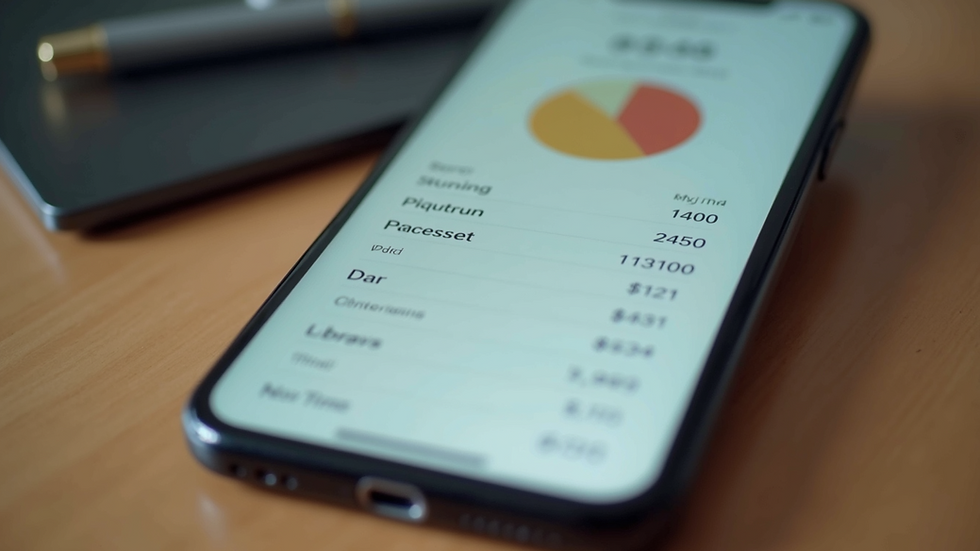Top 5 Budgeting Tips for Financial Success
- robmm101
- Sep 15, 2025
- 3 min read
Managing your finances can feel overwhelming, especially if you are just starting out. However, budgeting is a crucial skill that can lead to financial success. Whether you want to save for a vacation, pay off debt, or build an emergency fund, a solid budget can help you achieve your goals. In this post, we will explore five effective budgeting tips that can set you on the path to financial success.
Understand Your Income and Expenses
The first step in budgeting is to understand how much money you have coming in and going out.
Start by listing all your sources of income. This includes your salary, side hustles, and any other earnings.
Next, track your expenses. Break them down into fixed expenses, like rent and utilities, and variable expenses, like groceries and entertainment.
You can use apps, spreadsheets, or even pen and paper to keep track.
Once you have a clear picture of your income and expenses, you can see where your money is going.
This understanding is the foundation of effective budgeting.
Set Clear Financial Goals
Setting clear financial goals is essential for staying motivated.
Think about what you want to achieve in the short term and long term.
Short-term goals might include saving for a new phone or paying off a credit card.
Long-term goals could be saving for a house or retirement.
Make your goals specific, measurable, achievable, relevant, and time-bound (SMART).
For example, instead of saying, "I want to save money," say, "I want to save $5,000 for a vacation in the next year."
Having clear goals will help you stay focused and committed to your budget.
Create a Realistic Budget
Now that you understand your income and expenses and have set your financial goals, it is time to create a budget.
A realistic budget should reflect your lifestyle and priorities.
Start by allocating funds to your fixed expenses, then move on to variable expenses.
Make sure to include savings as a line item in your budget.
A common rule of thumb is the 50/30/20 rule:
50% of your income goes to needs (fixed expenses).
30% goes to wants (variable expenses).
20% goes to savings and debt repayment.
Adjust these percentages based on your personal situation.
The key is to create a budget that you can stick to without feeling deprived.
Monitor and Adjust Your Budget
Creating a budget is just the beginning.
You need to monitor your spending regularly to ensure you are staying on track.
Review your budget weekly or monthly to see how you are doing.
If you find that you are overspending in certain areas, adjust your budget accordingly.
For example, if you consistently spend more on dining out than planned, consider reducing that budget category and reallocating the funds to savings.
Flexibility is important. Life changes, and your budget should reflect that.
By regularly monitoring and adjusting your budget, you can stay aligned with your financial goals.
Use Budgeting Tools and Apps
In today's digital age, there are many tools and apps available to help you budget effectively.
These tools can simplify the budgeting process and make it easier to track your finances.
Some popular budgeting apps include:
Mint: This app connects to your bank accounts and automatically categorizes your transactions.
YNAB (You Need A Budget): This app focuses on helping you allocate every dollar you earn to a specific purpose.
EveryDollar: This app allows you to create a budget from scratch and track your spending.
Choose a tool that fits your needs and preferences.
Using technology can make budgeting less daunting and more manageable.
Final Thoughts on Budgeting for Financial Success
Budgeting is a powerful tool that can lead to financial success.
By understanding your income and expenses, setting clear goals, creating a realistic budget, monitoring your spending, and using budgeting tools, you can take control of your finances.
Remember, budgeting is not about restricting yourself; it is about making informed choices that align with your financial goals.
Start small, stay consistent, and watch your financial situation improve over time.
With these budgeting tips, you are well on your way to achieving financial success.



Comments